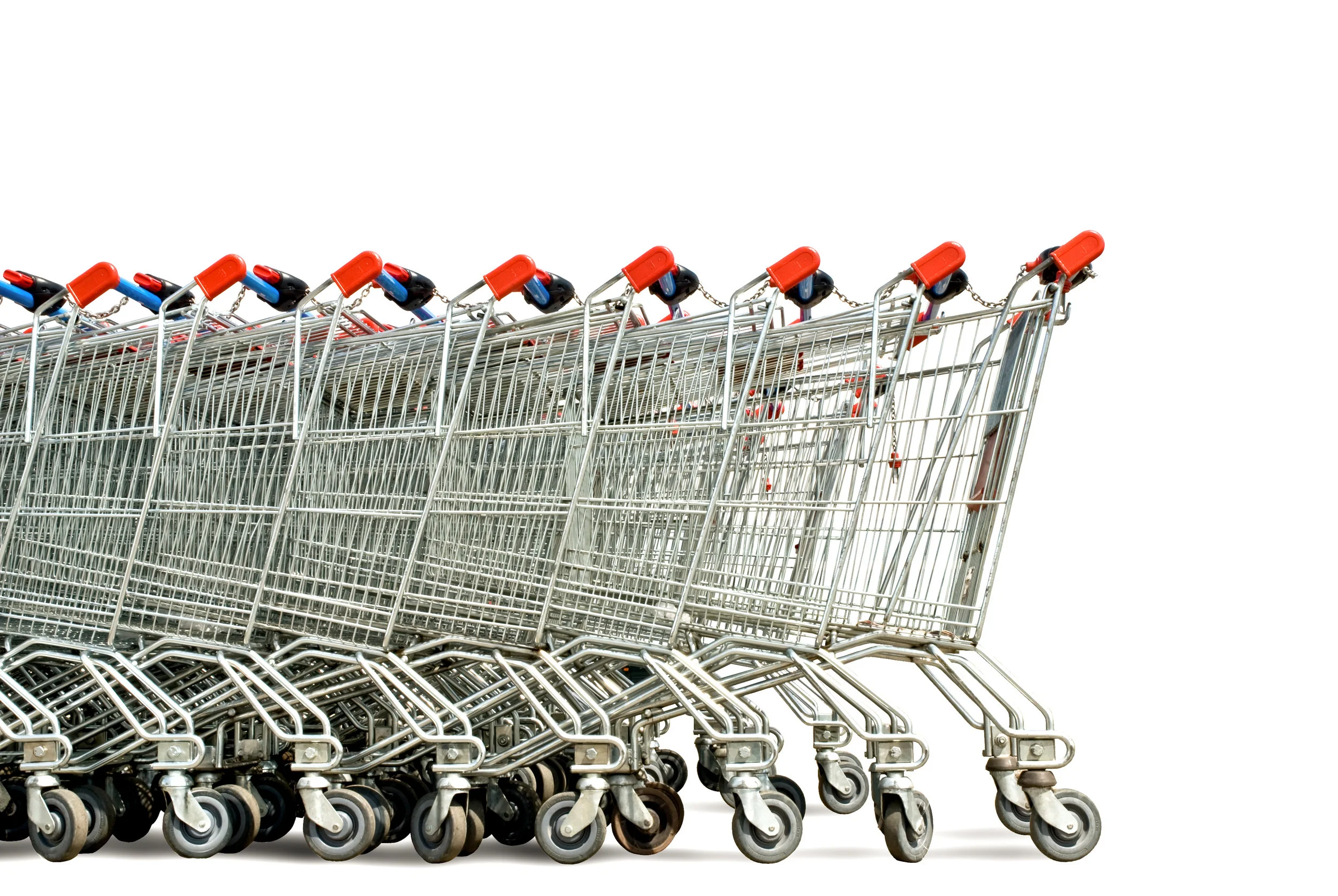This post may contain affiliate links. If you purchase products or services linked from this page, Summit of Coin may receive a small commission at no extra cost to you.
A couple months ago, I was working on our finances, and I was using a notepad that was supplied by my wife's employer. Her employer likes to send out notepads and calendars with inspirational topics and tips. Each month or each pad has a different topic. This particular notepad had a financial theme and every once in a while you will stumble upon a page with tips.
This particular page of tips was talking about strategies to save money at the grocery store. One statement stuck out to me, because I have recently been questioning buying in bulk. The below statement got me thinking:
"Buy the larger sizes because it usually costs less - but make sure you can use it before it goes bad."
First of all, I see a flaw in this statement. In general, the larger items are more expensive than buying a smaller item as a whole. However, when comparing the unit price the larger item would then be cheaper per one unit. I see the statement as misleading. The concept is right, but the wording is all wrong.
Similarly, finding the unit price of specific items and comparing them is a topic that we teach at the middle school level. We teach the students to find the unit price and pick the option that would be the best based on the unit price. Therefore, it seems like we are teaching everyone, including our kids that buying the bigger size with the smaller unit price is always the best idea.
There is some truth to the "whole buy in bulk" concept, because in the long run you get a better deal on the item that you purchase. However, is it always the best idea to buy in bulk?
I don't always believe that the best option is to buy in bulk. I have a couple reasons and data from our own personal lives to explain my personal beliefs on bulk. I will use one more example, based on my own theory about bulk in terms of people trying to get out of debt. Let's dig into my opinions....
All of the data images in this article are from the latest version of Quicken 2018. I finally decided to make the jump (mainly because I could not download my transaction to Quicken 2015 anymore). I still reccomend Quicken to all of my readers!
Why Am I not a Fan of Buying in Bulk?
First of all, I have always struggled with my weight and over eating. Therefore, for myself it's better to buy smaller portions of items, because I over eat and the savings that you would find from buying in bulk are non-existent. I honestly would overeat the savings and I had to get away from buying bulk to keep myself from overeating.
Now, I have gotten a little better at controlling my eating, but I still struggle at times and having large bags of snacks or something around the house makes it tough for me.
Despite my struggles, we did have a Costco card and I have been tracking the purchases with our Costco card. I have found a very interesting statistic. Each month that we use Costco, our grocery bill skyrockets and the months that we avoid Costco leads to a lower grocery bill. The data to support this statement is shown below:
The graph above compares our spending on groceries for each completed month of this year. As you can see, January and April were both expensive months for our grocery budget. In both of those months, we used Costco to buy in bulk. Both months that we did not use Costco, we spent less than $800. For our Costco Months, we spend nearly $1,000.00 or more.
We became Costco members for the first time in May of 2017 and our membership expired in April of 2018. We are still debating on becoming a member again (hence, the deep dive into buying bulk). Below is the graph from May 2017 to April 2018:
As you can see, the months that we used Costco were our most expensive months for grocery shopping. The only month that was not a Costco month that was expensive was November. That month we hosted a birthday party for our daughter and that led to the high grocery bill.
Overall, when you compare the average spent in each month (Costco vs. Non-Costco), you find a huge discrepancy. The average grocery spending for the Costco months is $991.20. The average grocery spending for the non-Costco months is $730.71. On average, that's a difference of $260.49. Over 12 months, that's a savings of $3,125.88 (not including the membership fee).
So, what does the data mean? It means that we have trouble of keeping our spending low when we use Costco. My wife and I have talked about the extra cost that goes with a Costco run and we believe that not sticking to a list could be our downfall with our Costco runs.
Whenever we go into Costco, it seems we find something to buy that's not on the list (from chips to avocado oil to barbecue sauce). Maybe for our family it's not strictly Costco, but the fact that we need to stay on a detailed list when we visit Costco.
Why Could a Costco or a Sam's Club Membership be Bad?
I have not always seen the benefit in buying in bulk. I don't really see a large savings in items that are purchased at a wholesale retailer. I honestly think that the savings are nominal and you can be lulled into believing that you are getting a better deal, just because you are shopping at a "wholesale retailer."
An article from The Clearpoint Blog shared in detail four problems associated with shopping at a wholesale warehouse. The four problems that they listed were: Overbuying (A Summit of Coin Problem), Waste, Under-Use, and Base Value Neglect (not looking at the unit price). All of the points made in this article were very good and are valid for anyone to consider.
The above points are reasons that I believe somebody in debt should avoid wholesale retailers. When you are struggling to get out of debt and are trying to stay on a strict budget, you can't afford to dump $100 or even $200 at Costco. Instead, you should just make a weekly shopping list and go the local grocery store.
Similarly, I see anyone that struggles to stick to a shopping list as someone that does not need to use a wholesale membership. There are too many things that catch your eye in those stores and you can easily drop loads of money on something that you don't need.
What's Our Plan Going Forward?
We haven't officially decided on our plan yet. I lean towards avoiding a Costco membership. However, my wife enjoys the Costco membership. She uses it more than I do, specifically for gas. Therefore, we have talked about getting the Costco membership again in June, but this data may change our opinion.
To make this decision we will have to answer the following questions:
- Is it worth the membership fee?
- Can we stick to our Costco grocery list?
- How can we calculate the savings when buying wholesale?
What are your thoughts on wholesale companies? Do they save you money or do you see the same problem that we see?
REACHING THE FINANCIAL SUMMIT, STARTS WITH YOU!
Interestingly enough, I may not like wholesale retailers, but one of the most frugal person on the planet loves them! Mr. Money Mustache wrote an article about he saves money by using Costco. Take a look at the article and make your own decision, but please leave a comment to let me know your thoughts. Everyone's opinion will help guide our decision.












